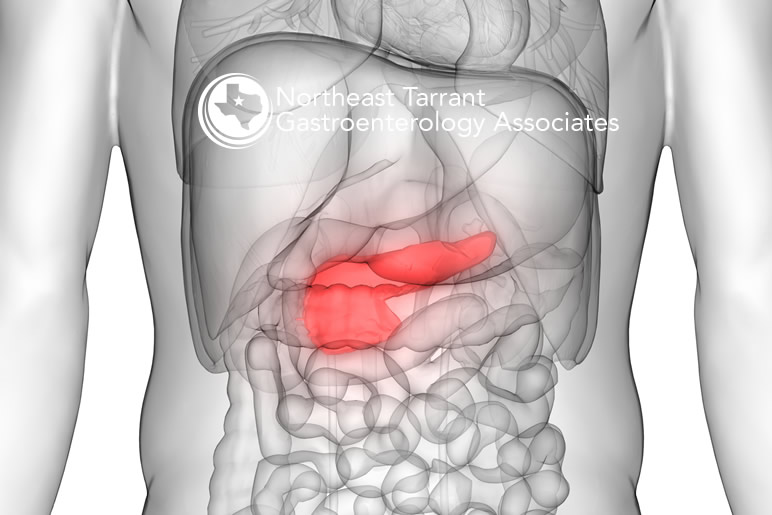PANCREATIC CANCER AWARENESS MONTH
November is Pancreatic Cancer Awareness Month. Although rare, pancreatic cancer is a devastating disease with a poor survival rate.
OVERVIEW
The pancreas is a small organ (approximately 6 inches long and 2 inches wide) that sits behind the stomach. The main functions of the pancreas include helping control blood sugar and aiding in digestion. Pancreatic cancer occurs when cells within the pancreas mutate and begin growing uncontrollably. Although there are a wide variety of pancreatic cancer subtypes, Pancreatic Adenocarcinoma is by far the most common (95% of pancreatic cancers are adenocarcinomas).

STATISTICS
A few quick facts about pancreatic cancer:
- Pancreatic cancer is relatively rare, accounting for only 3% of all cancers
- Although rare, pancreatic cancer is the 4th leading cause of cancer deaths in both men and women
- Pancreatic Adenocarcinoma is the most common type of pancreatic malignancy, accounting for 95% of diagnosed pancreatic cancers
- It is estimated that approximately 57,000 people in the U.S. will be diagnosed with pancreatic cancer this year and ~ 47,000 people will die from the disease
- The five-year survival rate for pancreatic cancer is only 8%
- The poor survival rate is primarily due to the fact that pancreatic cancer is typically asymptomatic in its early stages; thus, it is rarely detected early enough for effective treatment regimens to be initiated
RISK FACTORS
Although the exact mechanism by which pancreatic cancer develops remains unclear, a variety of risk factors have been identified:
- Advanced age
- Male gender
- African American race
- Chronic pancreatic inflammation (Pancreatitis)
- Smoking
- Obesity
- Diabetes
- Family history of pancreatic cancer
- Certain genetic syndromes
SYMPTOMS
Like many other gastrointestinal tract disorders, symptoms from pancreatic cancer may mimic a variety of other diseases. Some symptoms include:
- Pain in the upper abdomen (may radiate into the back)
- Poor appetite
- Unexplained weight loss
- Yellowing of the eyes and skin (Jaundice)
- Unexplained blood clots in the arms or legs (Deep Vein Thromboses)
- New-onset diabetes
- Bowel obstruction
- Ascites (the accumulation of fluid within the abdomen due to the spread of the disease to other intra-abdominal structures).
DIAGNOSIS
If your physician suspects that you have pancreatic cancer, there are a variety of tests that he or she may order:
- Diagnostic imaging tests such as a CT Scan or an MRI
- Endoscopic Ultrasound (EUS)
- Tissue sampling under CT or EUS guidance
- Laboratory studies (i.e. tumor markers that can be found in the blood)
TREATMENT
Appropriate treatment of Pancreatic Cancer incorporates multiple factors:
- Location of the tumor within the pancreas
- Extent of disease - referred to as “Staging”: i.e. localized to the pancreas (Stage 1) or evidence of spread to other areas and/or organs within the body (Stages 2-4)
- Overall health of the patient
- Personal preferences of the patient
Once the above factors have been determined, decisions on treatment modalities can be made. Options include:
- Chemotherapy
- Radiation Treatments
- Surgery
- Combination therapy (incorporates a mix of the above-mentioned treatments)
- Palliative Care (typically used in advanced cases where treatment options may be of little benefit and the goal becomes to improve the quality of life)
If you are concerned about pancreatic cancer or feel that you might be at risk, please feel free to schedule an appointment with us. We look forward to seeing you!
CALL TODAY
817-284-2693

 Meet Dr. Mark Murray
Meet Dr. Mark Murray Meet Dr. Eric M. Hill
Meet Dr. Eric M. Hill Meet Dr. kevin Ho
Meet Dr. kevin Ho